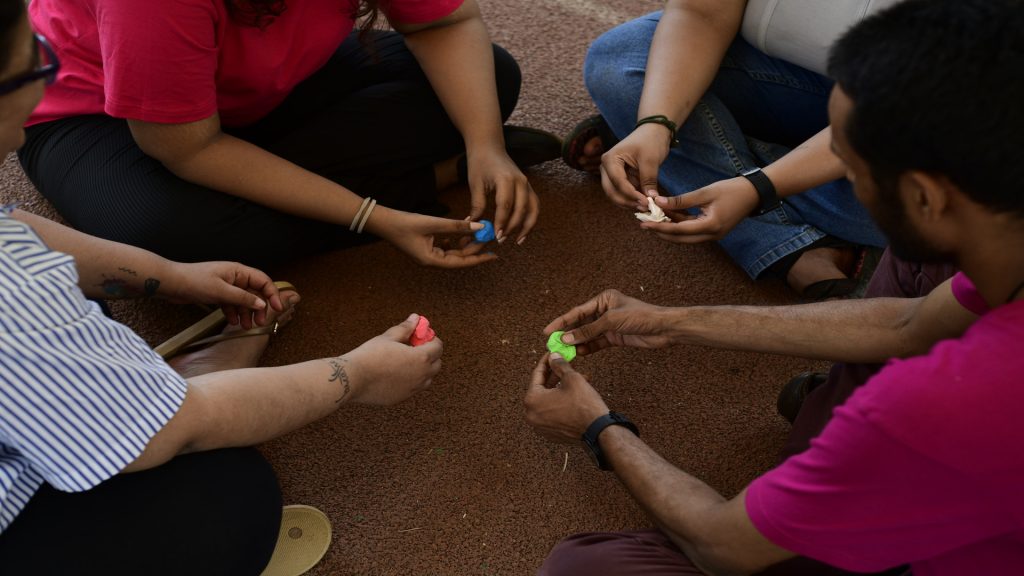Questions of our time: Is the climate emergency real? Is the Internet a boon? Can we succumb to the political opposition while inhabiting an echo-chamber of data? Are we, as the future generation, inevitably going to be mentally ill?
We know today more about the mind than we have known at any point in history. We also know that high functioning depression is possible, that teenagers exposed to the vastness of the internet can reflect negative adverse effects and we also know that medication, once equalled to inhumane shocks, works effectively (case by case, subjectively). Mental health industries across the world are growing, shaping and constantly shifting perceptions with newer and better evaluated research being done. This is a crucial occurrence because across our country and the world, individuals suffering from mental illnesses experience what they first believe, unexplainable emotions, thoughts, and patterns of behavior and are stuck inside a painful loop.
What is mental health for an adolescent?
Understanding mental illness is much like understanding our physical well-being, we need to take care and nurture it. However, stigma and confusion stop us from going ahead. The Live Love Laugh Foundation (TLLLF) commissioned a study recently on how India perceives Mental Health and reported that 14% of the respondents stated that they would always be fearful and around 28% would feel always feel hatred in some way or the other.
Being a young person or an adolescent who is trudging through paths of transformation constituting of major physiological and psychological change, can more often than not, let strong vulnerabilities develop. India has the highest percentage of adolescent population in the world and a 2014 study by Savitra Malhotra and Bichitra Nanda Patra titled ‘Prevalence of child and adolescent psychiatric disorders in India’ showed that school samples held high levels of mental health morbidity. This specifically refers to a rapidly deteriorating psychological or physical condition due to an underlying mental disorder.
How does school culture affect mental health?
I asked Dhanashree Perumal, a psychology teacher and former mental health practitioner, what her opinion was about schools and their relationship with counselors. She says, “Some institutions may not be well aware of how best to use a strong in-house resource like a counselor. They may have misconceptions about the counsellor’s role. Additionally, even parents can be resistant to the help offered by a counsellor, as parents fear stigma. Ideally though, all stakeholders involved in the child’s life should work as a team towards one goal — their wellbeing.” I further asked her about exam stress and why it is the leading deterrent in mental health among kids today, she stated that “Inherently a child does not worry about rank or score, it is only when significant social agents like parents or teachers attach grave importance to it, does stress develop to become a driving component.”
A recent Hindustan Times article about schools addressing mental illness states that, ‘Mental health problems, including depression and anxiety, first emerge in late childhood and early adolescence and often continue into adulthood, but 67% students are clueless about these common mental health problems, found a survey of 200 school counsellors, special educators, occupational therapists and psychologists across 130 private schools in Mumbai and Delhi NCR.’
The treatment of mental health going forward
Mental health in India is also about payment and expenditure whether we want to acknowledge it or not. Many teenagers especially from the middle and lower classes (which is a huge chunk of our population) believe that it is a privilege to get access to mental health care. The treatment of mental health needs is not yet normalised and coincides with the sharp stigmatization of it. It’s necessary that we start accepting that mental health is also just as important as our physical health. Teenagers and young adolescents across the country pay the brunt of various pressures and overzealous competition. There is absolutely no kindness, patience or an understanding of the nature of mental illness and is subsequently heavily under-represented in our time. The media might contort mental illness in an all ending nature while the internet might provide self-diagnostic tools. I stress that the form and shape mental illness takes is completely based on the individual and shouldn’t be generalized or put into clear cut categories.
Dhanashree also opined about how historical references for mental health started with negative religious and shamanic connotations. In India, our histories associate mental illness to complete mysticism and thus, a lack of grounded beliefs exist. This particular narrative is obviously detrimental and toxic to all.
To raise overall awareness about mental health, especially among our kids, we need to start conversations. Let it be small and as simple as recognizing feelings and talking or asking about these emotions. Let’s try harder to listen and not discount the experiences of thousands of young kids or teenagers going through various phases of change.
Manogni T is an Editorial Intern at One Future Collective.
Featured image source: Speaker TV
